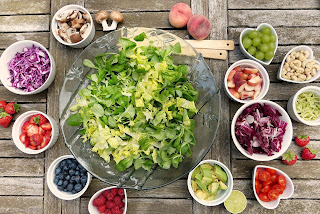Benefits of Eating Vegetables
Introduction
You know that eating vegetables is good for you, but do you know why? This article will give you a run-down of all the benefits that come from consuming those leafy greens and colorful veggies. From improved heart health to a lower risk of cancer, there are plenty of reasons to make sure you're getting your daily dose of veggies!
Nutritional value of vegetables
Vegetables are an important part of a healthy diet. They are packed with nutrients that can help your body function properly and promote good health.
Vegetables are a good source of vitamins and minerals, including vitamin A, vitamin C, potassium, and folic acid. They also contain fiber, which is important for maintaining a healthy digestive system. Eating a diet rich in vegetables can also help you lower your risk for certain chronic diseases, such as heart disease, stroke, and cancer.
So make sure to include plenty of veggies in your next meal! Your body will thank you for it.
Health benefits of eating vegetables
It’s no secret that vegetables are good for you. They’re an essential part of a healthy diet and can help protect against certain diseases. But did you know that eating vegetables can also have other benefits?
Vegetables are a good source of fiber, which can help to keep you regular and may reduce your risk of heart disease and other chronic conditions. They’re also low in calories and can help you to maintain a healthy weight.
Eating a variety of vegetables can also give you more energy and improve your skin and hair health. So, next time you’re looking for a healthy snack or side dish, be sure to reach for some veggies!
Tips for incorporating more vegetables into your diet
1. Incorporate vegetables into every meal. Add diced vegetables to omelets for breakfast, pack a salad or veggie wrap for lunch, and make roasted vegetables as a side dish for dinner.
2. Get your family and friends involved. Ask your spouse to help you chop veggies for dinner, or invite your friends over for a healthy cooking competition.
3. Make veggies more exciting. Experiment with different recipes and flavor combinations to find new ways to enjoy eating vegetables.
4. Be patient. It may take some time to get used to incorporating more vegetables into your diet, but stick with it and you’ll reap the many benefits of eating more veggies!
Conclusion
There are many benefits of eating vegetables, and we hope that this article has helped you to see just how important they are for your overall health. Vegetables are packed with nutrients that can help improve your health in a number of ways, so make sure to include them in your diet every day. If you need some inspiration on how to cook or eat more veggies, check out our blog for ideas. Thanks for reading!



No comments: